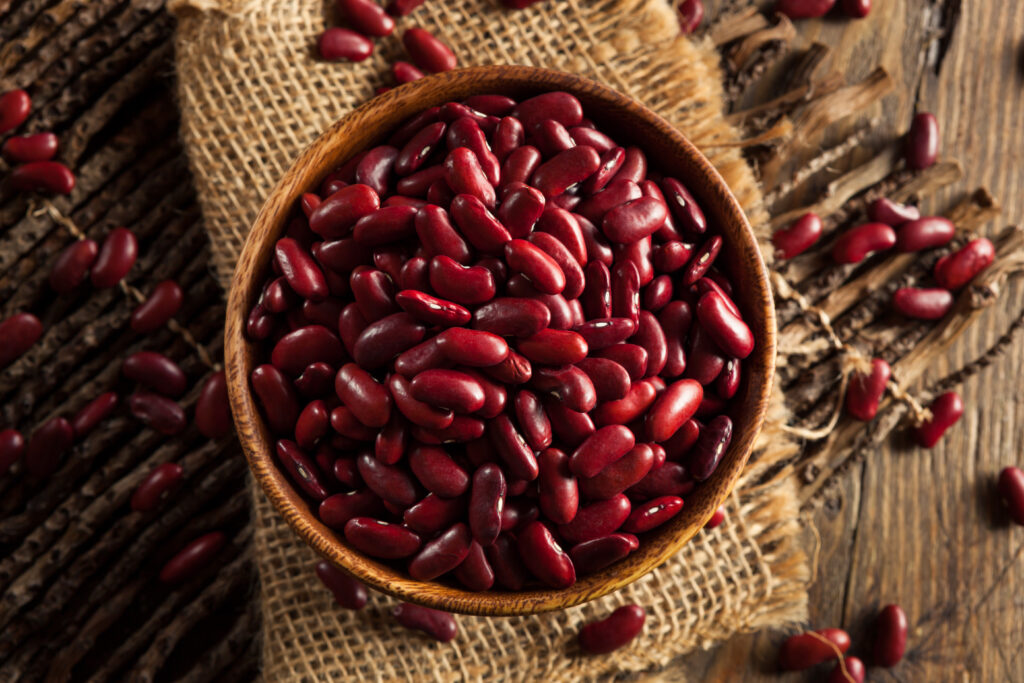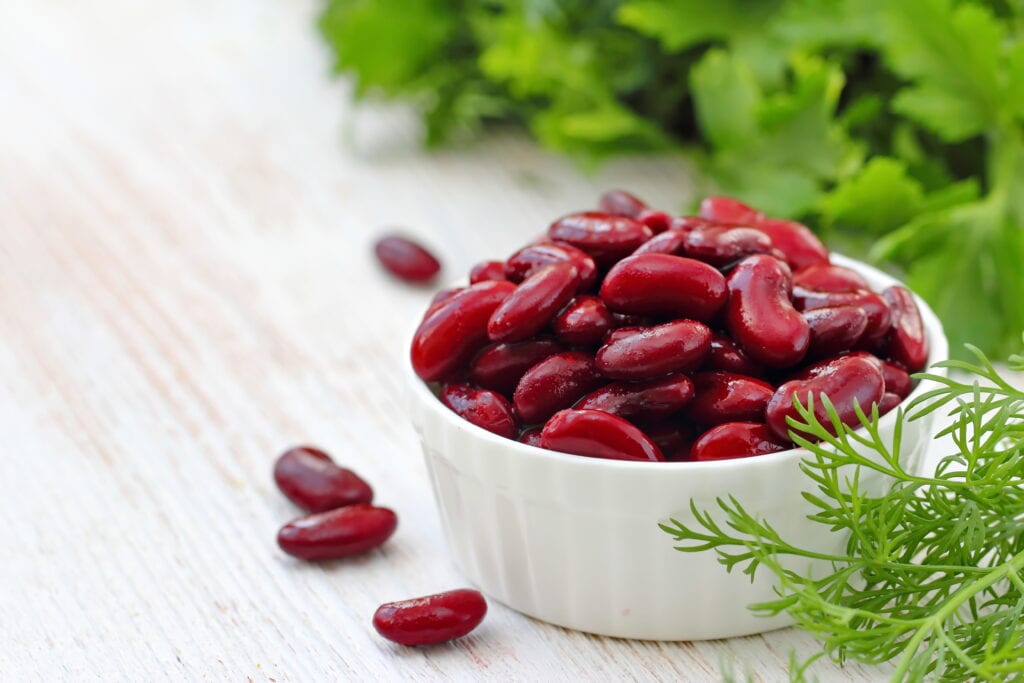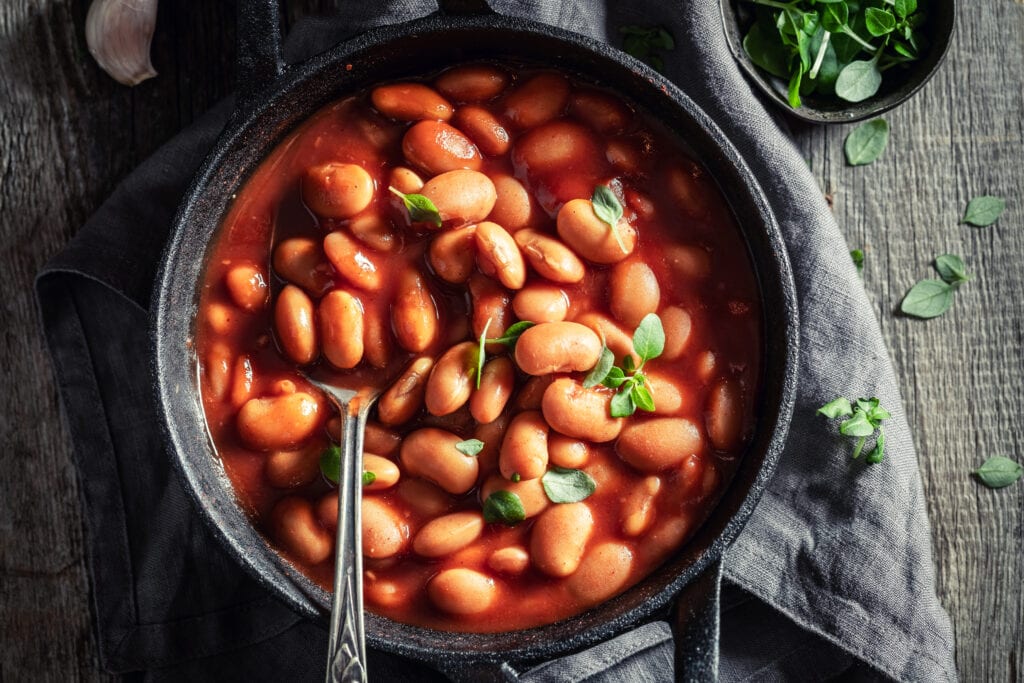
How Healthy are Kidney Beans?
Kidney beans (also called Lobia in Pakistan and Rajma in India) get widely consumed all around the world. These kidney-shaped beans are famous for nutrition content and benefits.
So, how healthy are kidney beans? Yes! Kidney beans are quite nutrient-dense and a healthy option. However, they should get well-cooked, or else the raw and improperly cooked beans may prove to be harmful.
Did you know that kidney beans got named after their resemblance to human kidneys? Ugh, it is undoubtedly disgusting. But, let’s not forget the positive aspects of kidney beans. Read more about healthy kidney beans!
Nutrition Value
The kidney beans come in a wide variety of shapes, colors, and textures. Thus, people think that kidney beans nutrition varies with each type. But, when looking at the big picture, it does not.
There might be slight nutritional changes due to the farming procedure or environmental conditions. However, each kidney bean has more or less the same nutritional content. A 100-grams portion of boiled kidney beans provide the following nutrients:
- 127 calories
- 67% of water
- 8.7-grams of protein
- 22.8-grams of carbs
- 0.3-grams of sugar
- 0.5-grams of fats
- 6.4-grams of fiber
Consideringly there is a large number of carbs in kidney beans. It also has the right protein amount, which is why kidney beans get called the largest plant-based protein source. Some people find it easy to replace meat with kidney beans.
Apart from this, kidney beans have moderate amounts of vitamins and minerals, such as Vitamin K1, iron, folate, manganese, and phosphorus. There are also some plant compounds, such as Isoflavones and Anthocyanins.
Health Benefits of Kidney Beans
Although the nutrients mentioned above quite clearly convey the health benefits of kidney beans, let us inspect this aspect deeply. One of the primary benefits of consuming kidney beans is the high consumption of protein and fiber.
While protein contributes to the development of muscles, the fiber stops unnecessary increment in weight. Also, kidney beans come with a certain type of protein (alpha-amylase) that hinders the breakdown of carbs. Thus, kidney beans assist in weight loss tremendously. They help you develop a positive trend in your growth chart.
What’s more, kidney beans help maintain healthy sugar levels in the blood. They do so by supplying minimal sugars. Thus, reducing the chances of heart diseases and other diseases caused by constant high levels of sugar in the blood. They also eradicate the chances of developing colon cancer.

Are there any disadvantages?
In comparison to the advantages, the disadvantages of the kidney beans are quite minimal. However, one must know them to avoid facing the consequences.
Firstly, raw kidney beans contain a very toxic substance called phytohaemagglutinin. Primarily, it is a protein that can cause food poisoning upon consumption. Both humans and animals have suffered food poisoning upon its consumption.
For the very reason, it is important to soak the beans for at least 5-6 hours and then cook or boil it thoroughly. Secondly, raw and inappropriately cooked kidney beans also contain several anti-nutrients.
For example, raw kidney beans contain phytic acid, which inhibits the absorption of minerals like zinc and iron. Moreover, these can cause bloating and diarrhea in some people.
Verdict
All in all, the kidney beans are a good source to make your meals super nutritious. However, they must get thoroughly cooked. Raw or undercooked kidney beans may prove to be toxic for the human body and may cause undesired consequences.

Bonus Tip: The Healthiest Way to Cook Kidney Beans
In some foods, nutrition may get reduced after cooking. Hence, a majority of people hunt for safer and healthier ways of meal preparation. The same query arises for kidney beans where people constantly debate on how to cook healthy kidney beans.
Well, perhaps, the healthiest method to cook kidney beans is to pre-soak them. Soaking the beans makes them digestible and easy to prepare. There are two methods of pre-soaking.
One, soak the beans in a water-filled pan, keep it in a refrigerator, and leave it overnight. Two, soak the beans in a water-filled pan, boil it on the stove, remove from the heat, cover the pan, and leave for straight two hours.
After soaking, you can either cook the beans directly on the stove or in a pressure cooker. Do not add any seasoning or spices until the beans have simmered in the water. Otherwise, the beans will become tight and hard.
Leave your comment
You must be logged in to post a comment.